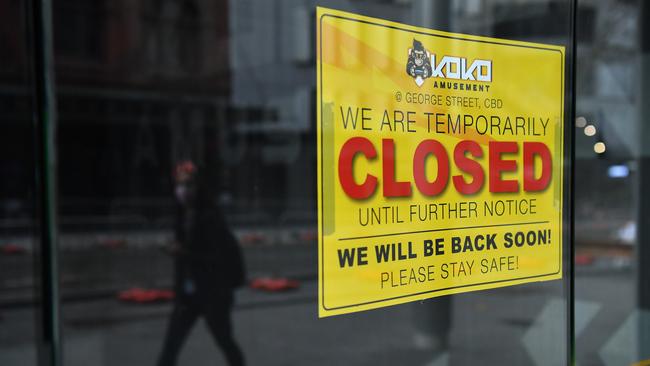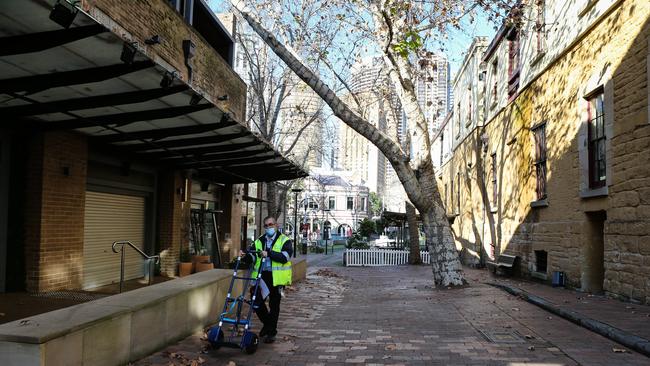10,000 jobs a day: Sydney lockdown smashes employment
The food and hospitality industries have been hardest hit by weeks of restrictions in Sydney while the public service has thrived, according to new ABS employment figures.
NSW Coronavirus News
Don't miss out on the headlines from NSW Coronavirus News. Followed categories will be added to My News.
Sydney’s lockdown has cost the local economy more than 10,000 jobs a day, undoing all of the past 12 months’ recovery, according to an analysis of ABS employment figures released Thursday.
While payroll numbers declined slightly across the country during the period, over the fortnight ending July 17, NSW job figures fell 4.4 per cent.

According to an analysis of the figures by the Institute for Public Affairs, between June 26 (when the lockdown started) and the end of the most recent reporting period, that means that 214,400 jobs were destroyed across NSW – equivalent to 10,200 per day.
Most of these were in the food services and hospitality industries, with 54,300 jobs destroyed.
The analysis also found that while the private sector has been hard hit during the pandemic, the public sector has thrived.
Since the start of the pandemic in May, 2020, the number of public sector jobs has increased by 12 per cent to July 17. Recent polling by the IPA found that three-quarters of NSW residents believe public sector workers earning more than $150,000 per year should take a 20 per cent pay cut for as long as the Greater Sydney lockdown continues.

“Australia had a K-shaped recession and is in a K-shaped recovery: those in the private sector and particularly small business are struggling on the downward arm while big business and the public sector flourish on the upward arm,” said Mr Cian Hussey, Research Fellow at the Institute of Public Affairs.
“As with every other lockdown, the most recent round of lockdowns have exclusively resulted in job losses in the private sector while the public sector remains unaffected.
“Those designing and implementing lockdowns never see the effects their decisions have on jobs because they remain protected.
“Lockdowns force small businesses, young people, and the lowest income earners backwards while allowing big businesses to keep expanding and public servant headcounts to continue growing unimpeded. In many circumstances, lockdowns actively benefit big businesses and allow them to increase their market share at the expense of small and family-run businesses.”




